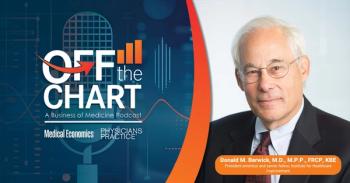
Cities Counter State Refusal to Expand Medicaid
Texas is a prime example of a state refusing federal funding for Medicaid out of misplaced principals that in the end hurt access to care.
Last week, the first meeting of the Dallas County Affordable Care Act Coalition assembled in the Dallas County Administration Building, located on the first floor of 411 Elm Street. The building was formerly known as the Texas School Book Depository and sits on grassy knoll, next to Dealey Plaza and a three-lane road leading to a triple underpass and then to Parkland Hospital. It’s the same building from which, six floors up and 50 years past, Lee Harvey Oswald fired three shots into President John F. Kennedy’s presidential motorcade. Some say this defining moment in history not only solidified public sympathy for President Kennedy’s social programs, but directly led to the passage of the Civil Rights Act of 1964 and Medicare and Medicaid Amendments to the Social Security act in 1965.
Last week, 411 Elm Street hosted the coalition's discussion regarding the $2.5 billion in unreimbursed care provided by the City of Dallas and Dallas County. Dallas and Houston have been trying to figure out what to do about the fact that Texas state legislators led by Gov. Rick Perry, refuse to accept federal dollars to expand Medicaid under the reform law. This is frustrating to city and county budget managers, regardless of how they might feel about politics. Under the law, the federal government will foot the bill for all newly eligible Medicaid recipients, and subsidize policies available through health insurance exchanges. At least for the foreseeable future. If only the State of Texas would let them. The reform law originally carried a penalty for states that refused, but the U.S. Supreme Court struck down that portion of the law in National Federation of Independent Business v. Sebelius.
The law is modeled after the 2006 Massachusetts Healthcare Reform Law; Southern states naturally don’t need to read it to know they don’t like it. They have been fighting federal power for 250 years. It all started when Thomas Jefferson squared off against Alexander Hamilton and John Adams over the assumption of Revolutionary War Debt. (Southern states had paid their Revolutionary debt, but Massachusetts had not. Hence, assumption of the debt meant federal taxes would be paid by taxpayers in the South, to relieve the debts of the deadbeat north. )
A Whiskey Rebellion and two-and-a-half centuries later, and Southerners are still battling ideas generated from Massachusetts on taxation. Some conservative physicians groups such as Association of American Physicians and Surgeons, object to the entire concept of health insurance. They don't like anyone telling doctors how to do their jobs. Others feel that we have bankrupted the government and many private corporations, all in a naïve attempt to promise and deliver the moon to everyone in need of healthcare.
I think it is tremendously noble for citizens to object to the reform law on the basis of national fiscal responsibility, and for doctors groups to object on professional philosophical grounds. On the other hand, for a hospital system, or a mother of four with no health insurance, refusing federal help is just plain stupid. This is part of the point the ACA Coalition of Dallas is trying to drive home in a state which prides itself on independence. Like it or not, the federal government is giving away money to anyone who needs it. What's worse is that part of the law’s cost is supposed to be funded through Medicare cuts; so non-participating states get all of the cuts, and none of the benefit. Some take the view, "make hay while the sun is shining."
Practically speaking, the reform law will either survive, because we don’t have any other plan; or fail, because enough Democrats will be voted out of office in Washington, D.C., to secure repeal. Either way, it very likely will not make any difference whether Texas and other states hold out on general principles.
Newsletter
Optimize your practice with the Physicians Practice newsletter, offering management pearls, leadership tips, and business strategies tailored for practice administrators and physicians of any specialty.













